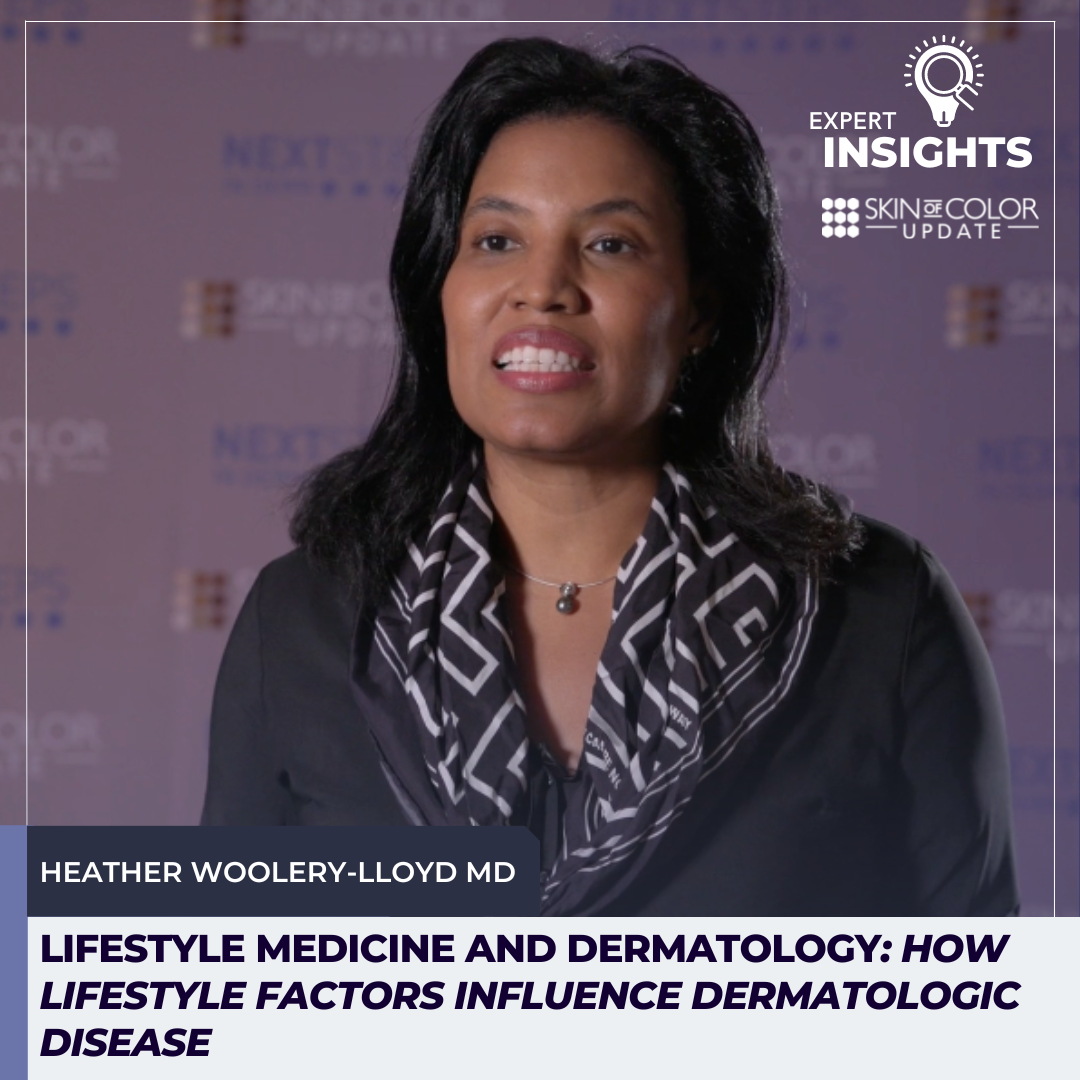Next Steps in Derm, in partnership with Skin of Color Update, interviewed Dr. Heather Woolery-Lloyd, who is board certified in both dermatology and lifestyle medicine. Watch as she shares the six major pillars of lifestyle medicine, and which dermatologic conditions are shown to be influenced by lifestyle factors. You may change how you counsel your patients after watching this video!
Further Reading
If you want to read more about the role of lifestyle factors in dermatologic conditions, check out the following articles published in the Journal of Drugs in Dermatology:
Diet and Acne Update: Carbohydrates Emerge as the Main Culprit
ABSTRACT
The prevalence of adult acne in the US appears to be increasing over the last few decades. But what’s behind the rise: is it nature or nurture? We are well aware that genetics can strongly influence a patient’s risk of developing acne. However, significant changes in germline genetic variants are unlikely to have occurred over the last 20 years. Consequently, we are forced to examine environmental variables, including diet. This review article presents the most updated evidence supporting a link between refined carbohydrates and acne. Based on the data summarized here, dermatologists should encourage their acne patients to minimize their intake of high glycemic index foods.
Psychosocial Stress and Mechanisms of Skin Health: A Comprehensive Update
ABSTRACT
Although the relationship between psychosocial stress and skin health is commonly invoked in both the scientific and popular literature, its underlying mechanisms are still not well understood. In this review, we provide a comprehensive update on the pathophysiology of stress and its clinical impact on skin homeostasis. The recent characterization of a bidirectional HPA stress axis in the skin has illuminated peripheral stress pathways, with effects spanning inflammation, atopy, barrier function, dermal thinning, wound healing, and melanogenesis. Additionally, new research into the cutaneous microbiome suggests the development of stress-induced dysbiosis through the “gut-brain-skin” axis. These new findings help contextualize how lifestyle factors such as diet, personal care practices, and sleep patterns may mediate and sometimes amplify the cutaneous impacts of psychological stress. We aim to clarify these clinically important relationships and highlight areas of future study that have widespread academic, clinical, and commercial implications.
Stress and the Hair Growth Cycle: Cortisol-Induced Hair Growth Disruption
ABSTRACT
The stress hormone, cortisol, is known to affect the function and cyclic regulation of the hair follicle. When cortisol is present at high levels it has been demonstrated to reduce the synthesis and accelerate the degradation of important skin elements, namely hyaluronan and proteoglycans by approximately 40%. The following discussion outlines the relationship between stress, cortisol, and the effect on the normal function of the hair follicle. As a result of this connection, important correlations have been established in the literature to form a basis for novel, effective treatments of stress-related hair growth disorders. Amongst various treatment methods and substances, oral supplementation with a specific bioavailable proteoglycan stands out as a promising new therapeutic treatment method.
Did you enjoy this video interview? Find more here.

